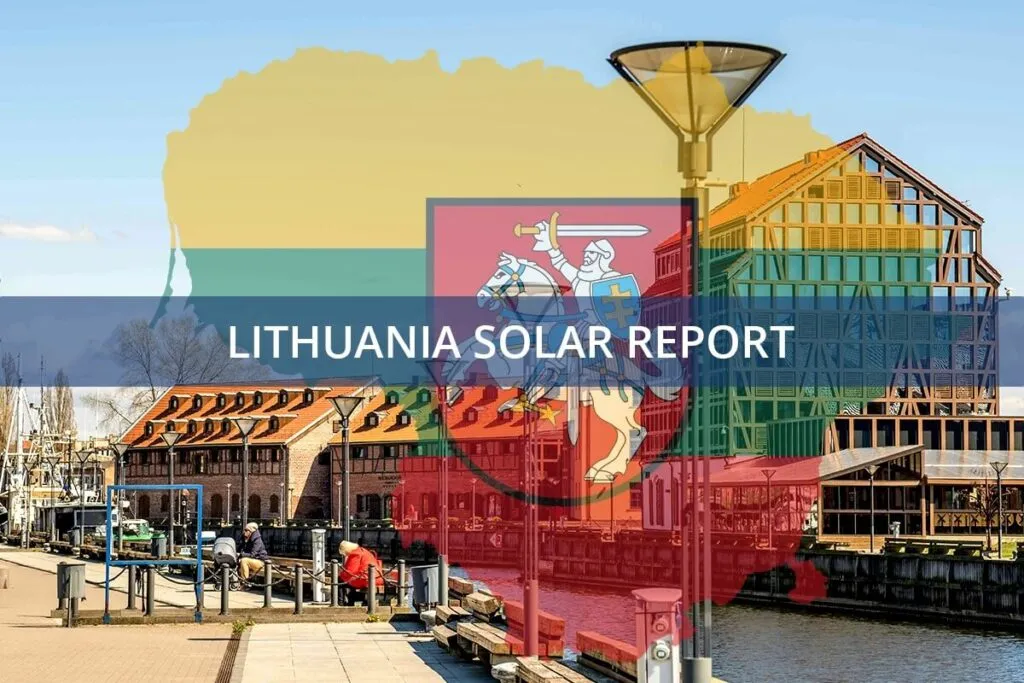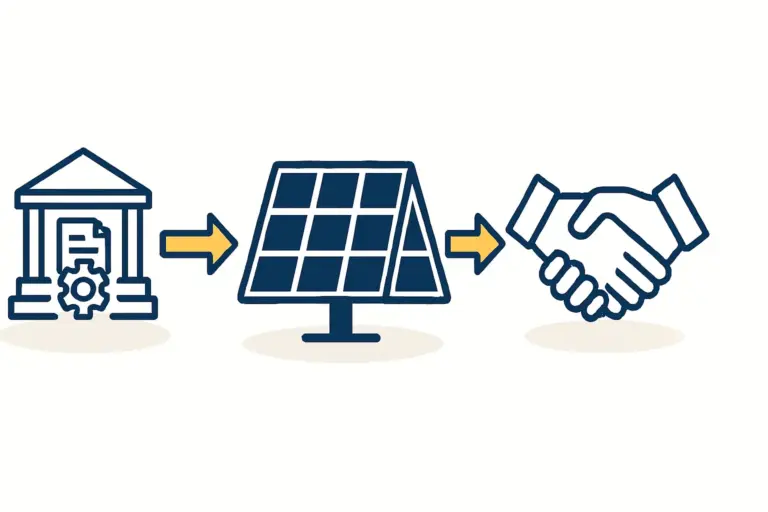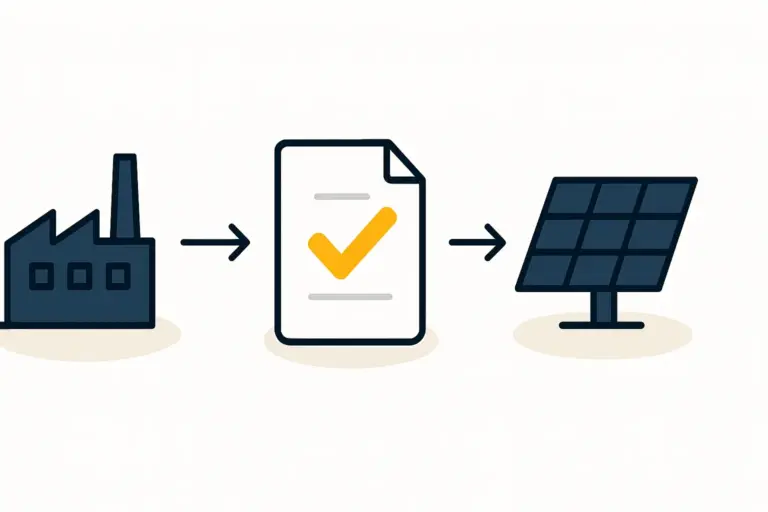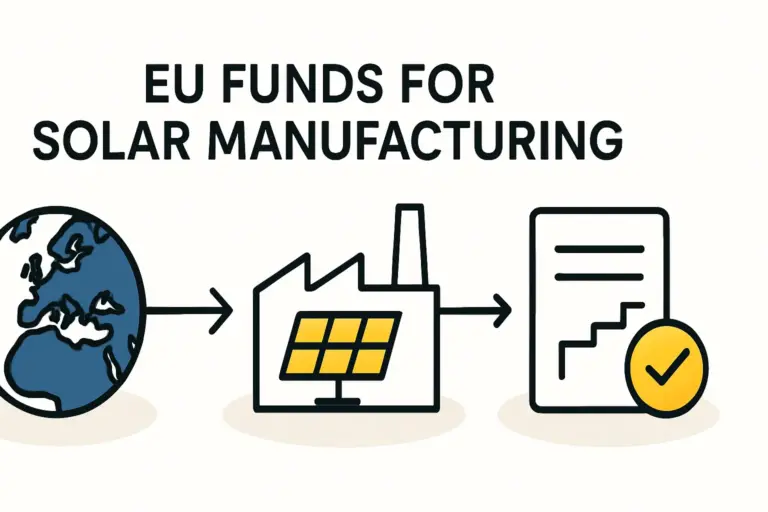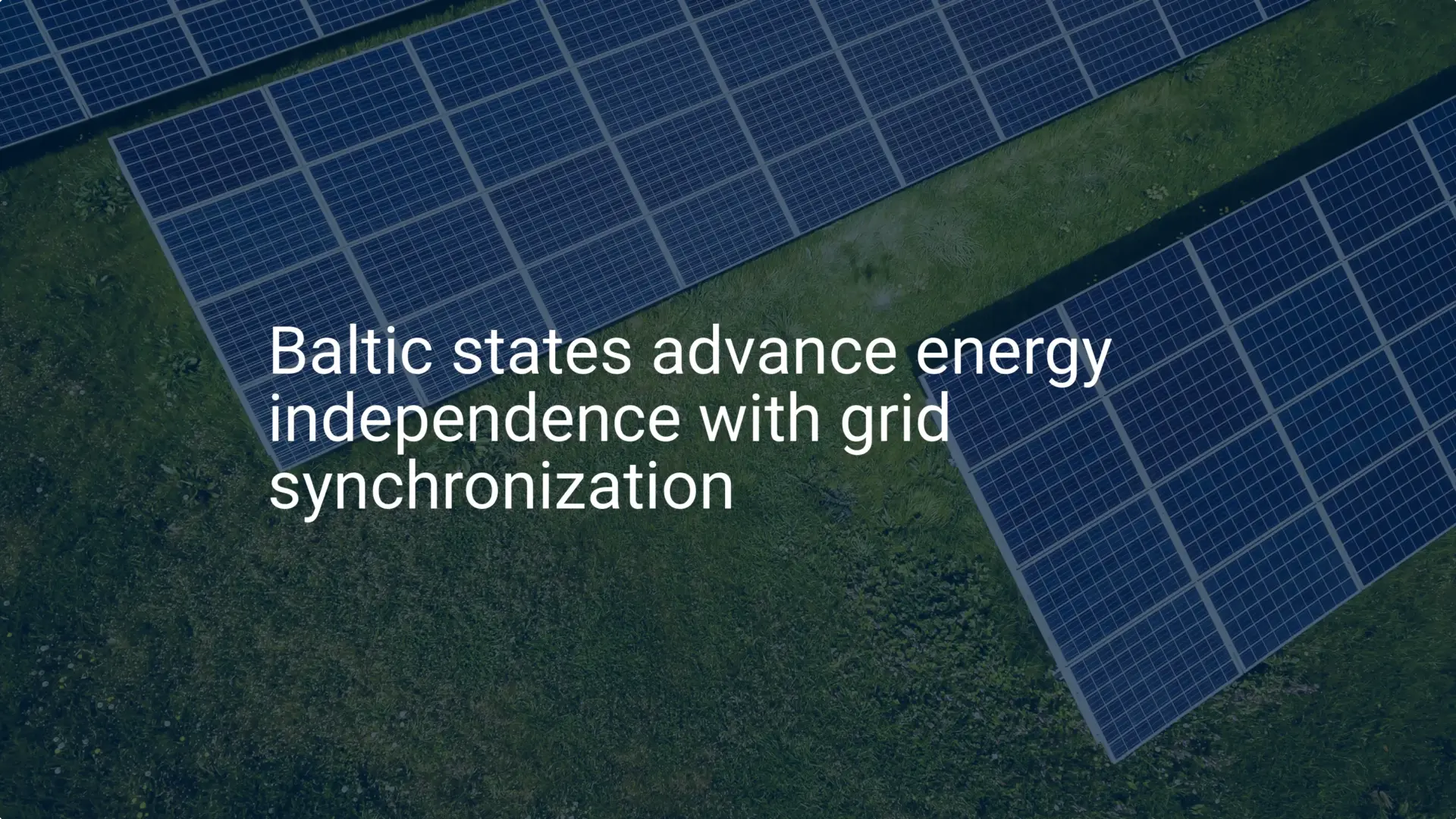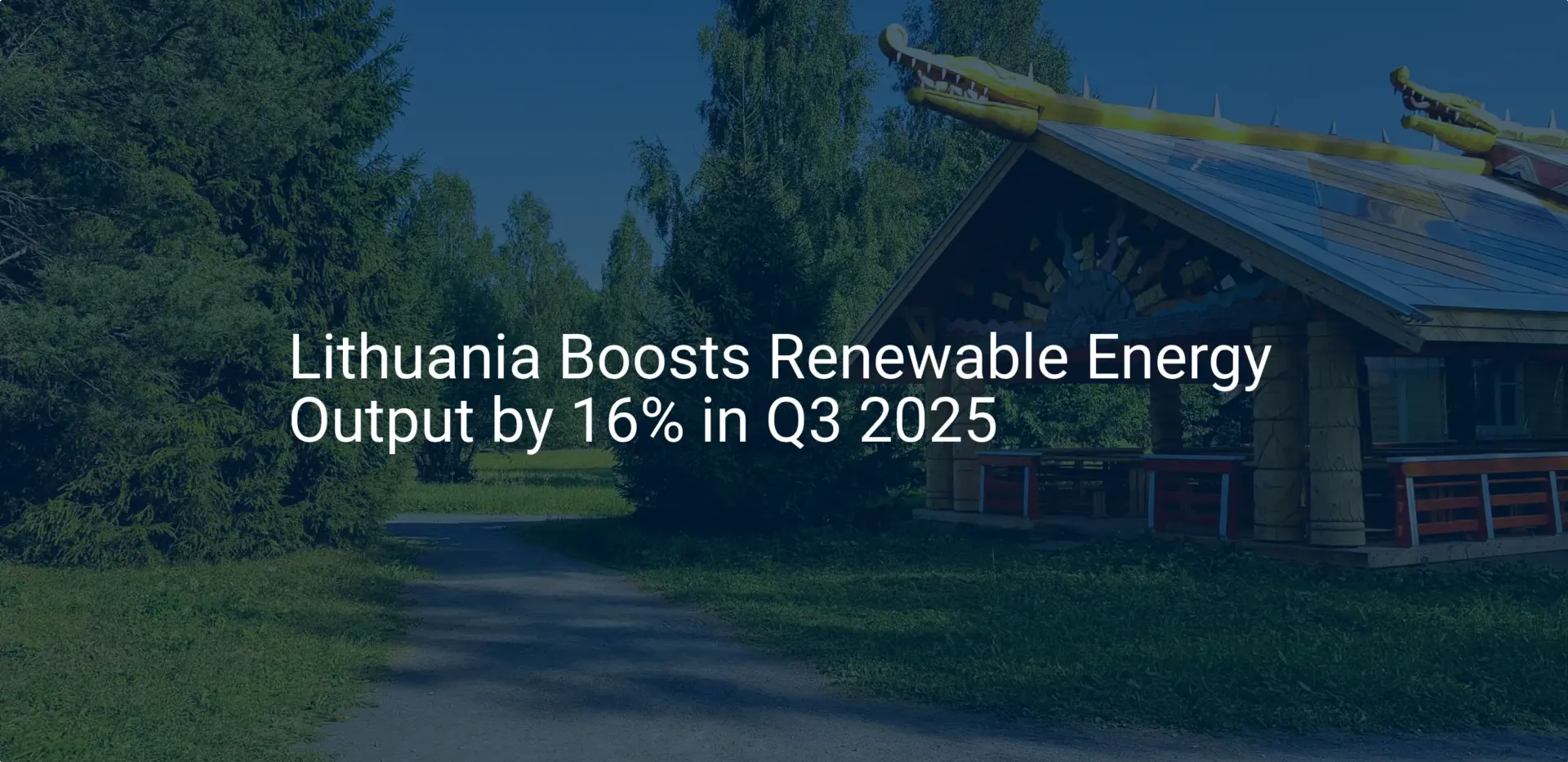When entering the solar manufacturing sector, entrepreneurs naturally focus on production technology and machinery costs. While these elements are vital, a project’s long-term profitability is often shaped by a factor decided much earlier: location.
Strategic site selection, especially within a supportive regulatory framework, can create financial advantages that compound over many years.
Lithuania, a member of the European Union, has established itself as a competitive hub for high-tech manufacturing through its Free Economic Zones (FEZs). For businesses planning to produce solar modules for the European market, these zones offer a compelling financial structure. This article breaks down the specific tax incentives available to solar manufacturers operating within these designated areas.
What is a Free Economic Zone (FEZ)?
A Free Economic Zone is a geographically defined area within a country that operates under economic regulations that differ from the rest of the nation. The primary purpose of an FEZ is to attract foreign direct investment, stimulate industrial growth, and encourage exports by offering a highly favorable business environment.
In Lithuania, prominent FEZs are located in key industrial centers such as Kaunas, Klaipėda, and Šiauliai. These zones are not merely industrial parks. They are integrated ecosystems with streamlined administrative procedures, modern infrastructure, and, most importantly, a unique set of financial incentives designed to reduce operational costs and the tax burden for investors.

The Core Financial Advantage: Corporate Income Tax (CIT) Holidays
The most significant benefit for any manufacturer in a Lithuanian FEZ is substantial relief from Corporate Income Tax (CIT). The standard CIT rate in Lithuania is 15%, but companies that meet investment criteria within an FEZ are eligible for the following exemptions:
-
Years 1–10: A 0% CIT rate for the first ten years of operation. This complete tax holiday allows a new venture to reinvest all its profits back into the business, accelerating growth, debt repayment, or further expansion.
-
Years 11–16: A 50% reduction in the standard CIT rate for the subsequent six years. This means the company would pay a rate of only 7.5%.
To qualify for these tax holidays, a manufacturing company must make a minimum investment in fixed assets. While specific requirements can vary slightly, a common threshold is an investment of at least €1 million.
From our experience with J.v.G. turnkey projects, this investment level is well within the typical scope for setting up a modern, small- to medium-scale solar module production facility. This incentive directly transforms a significant portion of initial capital expenditure into a long-term tax advantage.
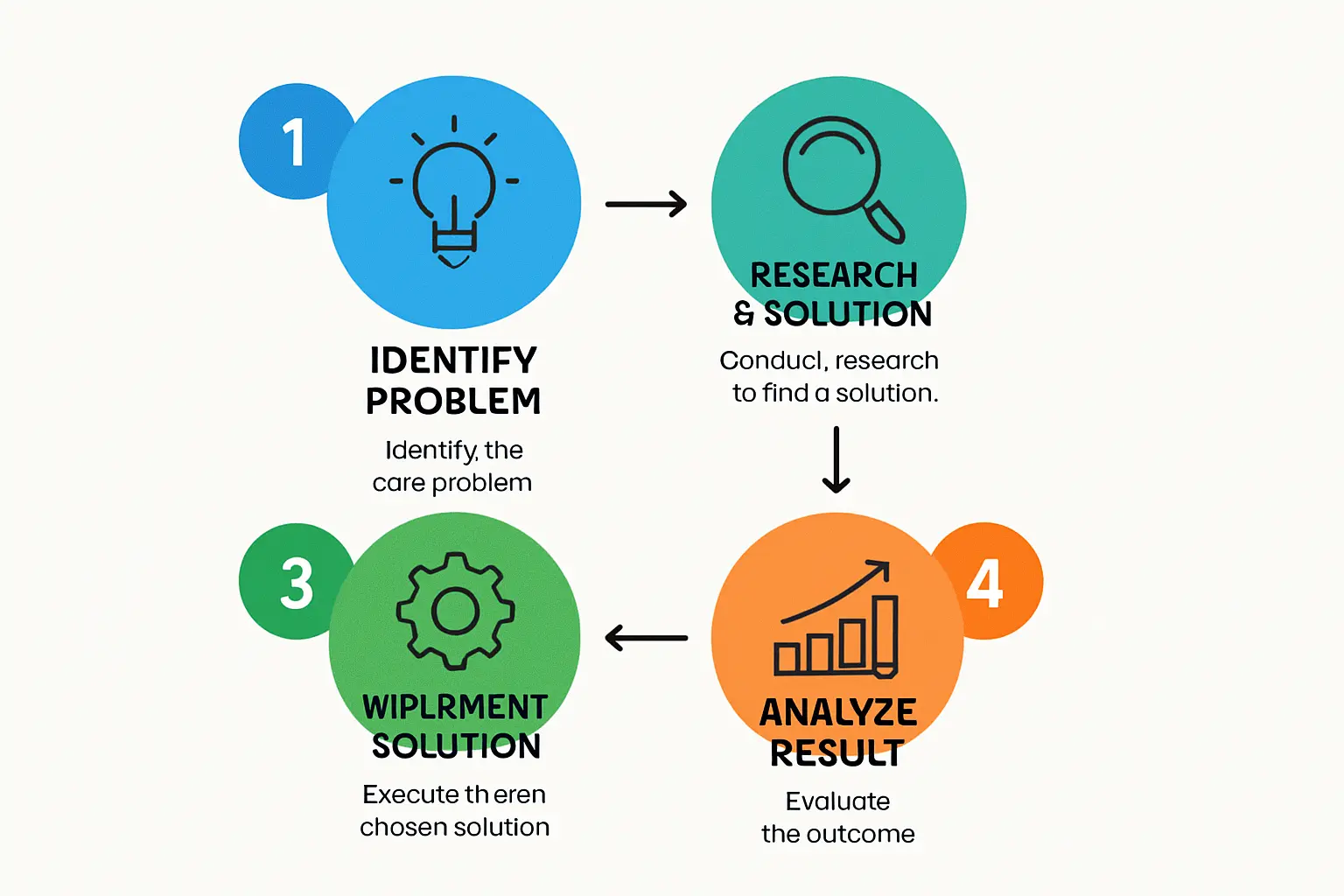
Beyond Corporate Tax: Additional Financial Benefits
The financial incentives extend beyond corporate profit tax, creating a multi-layered and favorable environment for investors.
Dividend Tax Exemption
For international entrepreneurs, the ability to repatriate profits efficiently is crucial. Under standard Lithuanian law, dividends paid to foreign legal entities can be subject to withholding tax. However, companies operating in an FEZ benefit from a 0% tax on dividends paid to foreign investors. This ensures that returns on investment are not diminished by additional taxes when transferred out of the country—a critical detail when creating a solar module manufacturing business plan.
Real Estate Tax Exemption
Companies operating within an FEZ are also exempt from real estate tax, which can be up to 3% of the property’s value annually in other areas. This exemption applies for the entire duration of the company’s operation in the zone—a benefit that significantly lowers fixed operational costs and makes the decision between leasing and owning a facility more financially straightforward. This consideration is a key part of planning the factory layout and building requirements.

Strategic Considerations for Solar Manufacturers
While compelling on their own, these tax benefits have even greater strategic value when viewed in a broader business context.
-
EU Market Access: Operating from Lithuania gives a solar manufacturer tariff-free access to the entire European Union single market—one of the largest and most developed solar markets in the world. This eliminates complex customs procedures and import duties that would apply to modules produced outside the EU.
-
Logistical Hub: Locations like the Klaipėda FEZ offer direct access to a year-round deep-water seaport, providing excellent logistics for importing raw materials and exporting finished products globally.
-
Navigating the Application: While the benefits are substantial, establishing a company and ensuring compliance requires careful planning and documentation. The selection of a turnkey solar production line, for example, must be documented correctly to qualify as part of the minimum capital investment.
Frequently Asked Questions (FAQ)
What is the minimum investment required to qualify for the full tax holiday?
Generally, a manufacturing enterprise must invest a minimum of €1 million in fixed assets, such as machinery and buildings, to be eligible for the full 10-year, 0% Corporate Income Tax incentive.
Do these benefits apply to all business types or only manufacturing?
The most significant incentives, particularly the full CIT holiday, are targeted at companies engaged in manufacturing and production. Service-based businesses may be eligible for different, often less extensive, benefits.
Are there restrictions on selling products within Lithuania versus exporting?
No, there are generally no such restrictions. A company in an FEZ can sell its solar modules within Lithuania, export to other EU countries, or export globally. The framework is designed to encourage all forms of trade.
How long does the process of establishing a company in a Lithuanian FEZ typically take?
With proper preparation and guidance, a company can be registered and established in a matter of weeks. The full process, including securing a site and setting up operations, naturally takes longer, but the administrative and legal setup is designed to be efficient for foreign investors.
Conclusion: Integrating Incentives into Your Business Strategy
The decision of where to establish a solar module factory is foundational and extends far beyond simple logistics. Lithuania’s Free Economic Zones demonstrate how the right location can actively contribute to a project’s financial success, offering multi-year tax holidays and exemptions on dividend and property taxes.
For an international entrepreneur, these incentives directly improve cash flow, increase the rate of return on investment, and provide a competitive edge in the discerning European market. A thorough understanding of these regional advantages is therefore a cornerstone of the feasibility studies and strategic planning that precede any successful manufacturing venture.

